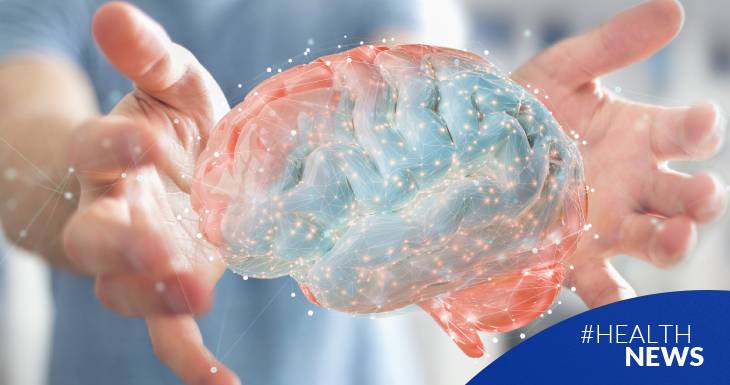Every year, during the month of March, World Brain Week is commemorated, created to raise awareness among the world's population about the importance of brain health.
Controlling conditions such as hypertension, high cholesterol and diabetes is important to protect brain health. These diseases can damage the blood vessels in the brain, increasing the risk of stroke and dementia, as well as affecting cognitive function.
These are brain-care habits that greatly help to meet the goal of preserving brain health:
- Follow a Mediterranean diet
- Control hypertension
- Avoid tobacco and alcohol intake
- Monitor obesity, diabetes, and cholesterol
- Exercise daily (during exercise, our brain increases blood flow, which means there is more oxygen and nutrients that improve cognitive function, mood, and memory. It also stimulates neuroplasticity, which means our brain is more adaptable and can learn new things more easily
- Take care of emotional well-being (to avoid stress and anxiety) Maintain intellectual activity (learn new things such as a language, cooking classes, or playing a musical instrument
- Maintain social relationships
- Get a good night's rest: because a good night's sleep helps the cerebrospinal fluid (CSF) that is naturally found in the brain and spinal cord to remove toxic waste. During the non-REM phase of deep sleep, large, slow waves of cerebrospinal fluid wash the brain.
Why is physical activity good for the brain?
Resistance exercises (strength and weight)
- Helps preserve total brain volume (TBV).
- Can prevent brain atrophy associated with aging.
- Improve neuronal connectivity and the health of the nervous system.
Aerobic exercises (walking, jogging, swimming, cycling, dancing)
- Promote blood circulation in the brain.
- They improve memory, concentration and cognitive function.
- They stimulate the production of neurotransmitters and neurotrophins, key to brain plasticity.
Yoga and meditation
- They reduce stress and anxiety, protecting the brain from damage by cortisol.
- They improve mental health and emotional balance.
- They can increase gray matter in areas related to attention and memory.
Advances in neuroscience that are revolutionizing the treatment of brain diseases:
Brain diseases have represented a great challenge for medicine due to the complexity of the nervous system. However, advances in neuroscience and technology are revolutionizing the way we diagnose, treat and prevent neurological disorders. From artificial intelligence to innovative therapies such as deep brain stimulation, the future promises to improve the quality of life of millions of people around the world.
Some examples of these advances are:
Brain-machine interfaces (BCI): Thoughts that control devices They allow the brain to communicate directly with external devices, such as robotic prostheses or computers. This technology is transforming the lives of people with paralysis, allowing them to recover motor functions through neural implants that read and translate brain signals into movement. Companies such as Neuralink have made significant advances, bringing us closer to a future where the mind and technology work in perfect synchrony.
Gene therapy:
A step forward in the fight against neurodegenerative diseases Gene therapy seeks to correct genetic defects that cause diseases such as Alzheimer's, Parkinson's or amyotrophic lateral sclerosis (ALS). It consists of introducing functional genetic material into the cells of the nervous system to restore their activity. Although it is still in development, the first clinical trials have shown promising results in slowing cognitive and motor deterioration.
Deep brain stimulation (DBS):
A "pacemaker" for the brain It is a technique that uses electrical impulses to modulate neuronal activity in specific areas of the brain. It has become an effective treatment for Parkinson's, epilepsy and obsessive-compulsive disorder (OCD). Thanks to technological advances, DBS devices are becoming more precise and personalized, allowing more effective control of symptoms without the need for medication in some cases.
Artificial intelligence in neurological diagnostics
AI is revolutionizing the diagnosis of brain diseases by analyzing MRI images and CT scans with unprecedented accuracy. Advanced algorithms can detect early signs of Alzheimer's or brain tumors before symptoms are apparent, allowing for more effective and timely treatments.
Neural regeneration and neuroplasticity:
Can the brain heal itself? Modern neuroscience has discovered that the brain has an impressive capacity to adapt and regenerate, known as neuroplasticity. Experimental therapies based on stem cells and neural growth factors are exploring ways to stimulate the regeneration of damaged neurons, offering hope for patients with traumatic brain injuries or neurodegenerative diseases.
The gut-brain axis: Probiotics and cognitive health
Recent research has shown that gut health directly influences brain function. A clinical study found that consuming probiotics (Bifidobacterium animalis subsp. lactis GCL2505) and prebiotics (inulin) improves memory, concentration and mental flexibility. This is due to the increase in beneficial bacteria in the gut and the reduction of inflammation, a key factor in cognitive decline. Optimizing the microbiome through diet or supplements could become a key strategy to prevent neurodegenerative diseases and improve mental clarity on a day-to-day basis.
During World Brain Week, researchers, doctors and organizations around the world hold conferences, workshops and educational activities to inform about the prevention of neurological diseases, the importance of mental health and the latest discoveries in neurotechnology. A perfect excuse to learn more about how to take care of our brain and enhance its capabilities.


